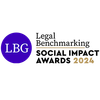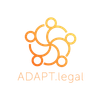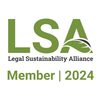On 15 October 2024, the EUIPO’s Grand Board of Appeal issued an important opinion on the controversy surrounding the conversion of EU trade mark applications that are subject to non-final refusal decisions. The Grand Board of Appeal clarified that if a trade mark application is withdrawn during the appeal period, the EUIPO’s refusal is rendered inoperative and does not prevent conversion in to EU member states.
Background
When an EU trade mark application or registration is refused, cancelled or withdrawn, the owner can, depending on the reasons for the EU trade mark ceasing to exist, convert it in to national trade mark applications in EU member states. Conversion is regarded as countering the negative effects of an EU trade mark’s unitary character by allowing applicants and proprietors the possibility of protecting the mark at the national level of the EU whilst retaining the filing, priority and seniority dates of the EU trade mark (Article 139(3) EUTMR).
The Grand Board’s opinion follows a history of divergent rulings on the consequences of withdrawing an EU trade mark application after a refusal decision. Since 2006, the practice of the EU Intellectual Property Office (EUIPO) was that non-final decisions can prevent conversion. This was based on the Grand Board of Appeal’s previous decision in OPTIMA which established that a withdrawn application could still produce residual legal effects, including potentially blocking conversion. However, the underlying EU Trade Mark Regulation was later amended in 2016 with the consequence that decisions are only to take effect from the date of expiration of the appeal period (Article 66(1)).
This led to the landmark NIGHTWATCH decision of 2022 in which the Fourth Board of Appeal found that conversion is not excluded where an application is initially refused and then withdrawn during the appeal period. Referring to the amended Article 66(1), the Board highlighted that the EUIPO examination procedure closes not at the time of a decision, but instead on the expiry of the period for filing an appeal, or if an appeal has been filed, upon final dismissal of the case. This means that decisions do not become ‘final’ until the expiration of the appeal period. If an application is withdrawn during the appeal period, the refusal decision does not become final and therefore does not block conversion.
Opinion of EUIPO Grand Board of Appeal
On 22 February 2024, the Executive Director of the EUIPO referred a number of questions to the Grand Board of Appeal in an effort to gain clarity on the question of conversion. Following the submission of written observations from the Association of Trade Mark and Design Law Practitioners (APRAM), ECTA, the International Trade Mark Association (INTA) and MARQUES, the Grand Board of Appeal published its opinion on 15 October 2024.
In the opinion of the Grand Board of Appeal:
- Applicants who withdraw their EU trade mark applications before the decision has become final in accordance with Article 66(1) can convert to national applications in EU member states. This is regardless of the grounds for refusal.
- There is no requirement to file an appeal. Applicants do not need to challenge a refusal by way of an appeal in order to preserve conversion rights. A simple withdrawal of the application during the appeal period is sufficient.
- It makes no difference whether an application is withdrawn following a refusal decision in ex-parte or inter partes proceedings. Provided the refusal has not become final, conversion is possible.
Key Considerations for Applicants
Future applicants should take note of the following points:
- Withdraw at the right time – Ensuring that an EU trade mark application is withdrawn during the appeal period is crucial if the applicant is to avoid the effects of a final decision and convert the EU application in to separate national applications in EU member states.
- Think strategically – Where registration at the EU level is not possible, conversion of the application in to separate national applications remains a viable strategy for protecting a trade mark in key EU member states.
- Monitor legislative changes – Whilst the opinion of the EUIPO Grand Board of Appeal certainly clarifies the requirements for conversion, future legislative changes or decisions could alter or refine this interpretation. It is therefore recommended that Applicants stay informed of any new developments. Please do not hesitate to contact Murgitroyd and its highly experienced team of trade mark attorneys should you ever have any questions.
Conclusion
The Grand Board’s opinion provides much needed clarification on the EUIPO’s approach to conversion. By affirming the previous decision in NIGHTWATCH, applicants can withdraw their applications within the appeal period, confident in the knowledge that the EUIPO’s refusal will not block them from pursuing national applications.



















